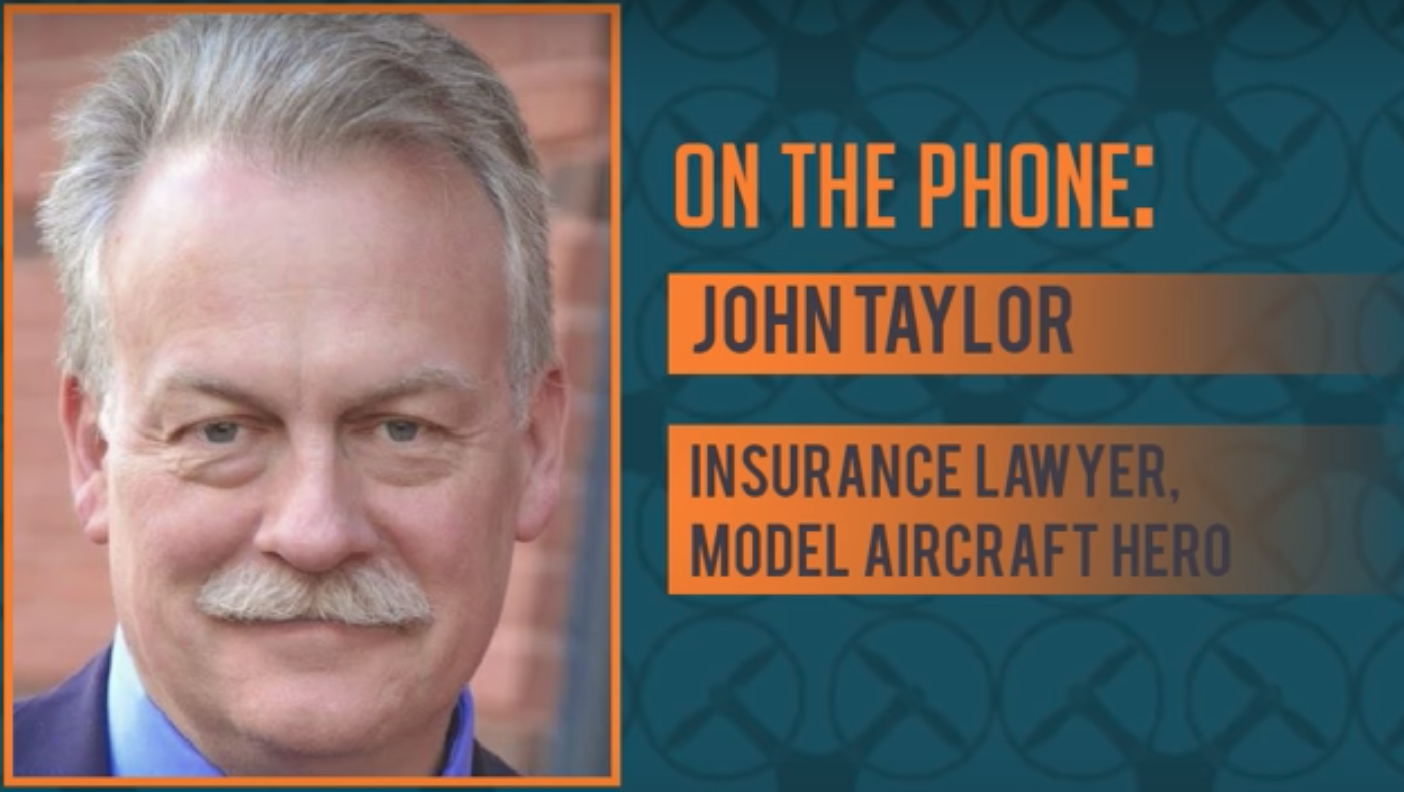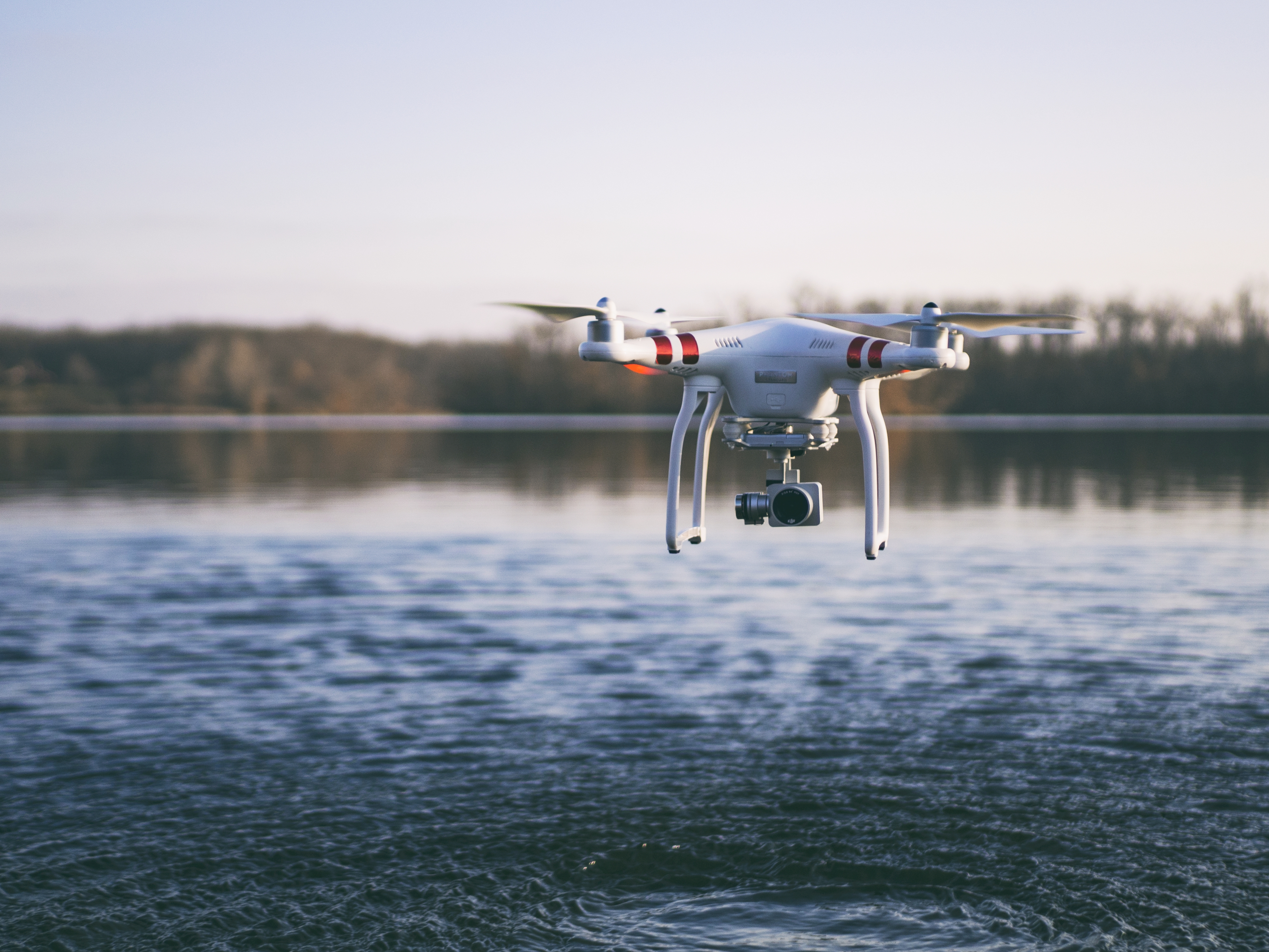
MEET THE MAN WHO FOUGHT FOR DRONE PILOTS EVERYWHERE…AND WON!
If you’re an active member of the drone community, you’ll already know that the FAA Drone Registration Regulation Part 48, a law that most of us predicted would come to an end at some point, was recently vacated by the U.S Court of Appeals for the District of Columbia Circuit. The law, which previously stated that all UAVs, whether they were used commercially or for fun, required registration before they could be deployed. While many of us were already questioning the validity (and legality) of such a regulation on drones, the court ruled against the FAA due to the FAA’s inability to “promulgate any rule or regulation regarding a model aircraft”.
Drone community advocate and founder of the UAV Legal News Group, John A. Taylor, is the man responsible for taking the FAA head-on. On a recent episode of AskDroneU, we had the opportunity to speak with John about the nuances in the Part 48 ruling, how he’s feeling now that he’s won and how he thinks it will affect the drone industry as we move forward.

AskDroneU: A lot of people think that the ruling may cause some confusion. Lester Holt went on NBC News and stated that drone users no longer need to register their drones, without clarifying how the bill applies to hobbyists versus professional drone pilots. Can you clarify this a bit? The ruling only allows hobbyists to fly without registration, correct?
John Taylor: That is correct. If you’re a commercial drone operator, you’ve also become a part-time lawyer, unfortunately. You’ll know, though, that you still have to register.
ADU: I’ve read some people on Facebook saying that maybe hobbyists should still register their drones. You know, Section 336 says that hobbyists should follow CBO guidelines. So, even though we no longer need drone registration, will hobbyists still have to follow these CBO guidelines. Will they still have to have a phone number and other information on their drone or are the days of writing numbers on our drones gone?
JT: Well, I’m not going to give anybody legal advice on it and it’s actually a little unclear whether the voiding of that regulation is immediate. There’s something called a “mandate” where the opinion comes down and then there’s another document that says “Yes, this is actually the court’s ruling”. Frankly, I’d had no experience in that court before and so I’m not sure how that’s all going to work out. As far as how to comply with existing law, and I’ve commented on this a couple of times in various places, the FAA has done a bad job in terms of making this so confused, convoluted and contradictory that I defy anybody to figure it out. In many cases, we don’t know what the law is. They haven’t defined what a CBO is, exactly. They haven’t defined what “operating within the programming” means. You know? I don’t know what the law is.
ADU: Interesting…
JT: I mean, the best advice you can give anybody is to basically fly safely. Follow the old AC 91-57. Fly low. Fly away from people. Fly away from aircraft and have a nice day.
ADU: How will this ruling affect hobbyists in the future and how will it affect the future of the drone industry? What’s your take on how things will proceed from here?
JT: Well, that’s the big unknown. A lot of people are very concerned that this is going to spur Congress to take action in the reauthorization. That’s a very legitimate concern. The timing of this was very unfortunate. My hope was that the ruling would come down at a time where there’s a lull in paranoia and a lull in Congressional activity and people would just move on. But with the timing of the reauthorization act, who knows what they’re going to do?
This is certainly a time for people to get active and contact their Congressmen and let them know how they feel. That really does make a difference. I think there are some talking points about the stellar safety record our hobby has. I like to point out that, to date, no American has ever been seriously injured by a hobby drone. People get hurt. They cut themselves, get bruises and one lady got a concussion. When you compare that to something like recreational ATV or personal watercraft, where dozens of people die every year, it becomes apparent that there really isn’t a problem here. It’s just a paranoia over a new technology.
ADU: We received a memo today that the FAA asked us to put out. It’s very interesting how they speak about this ruling and whether people should accept it or not. One of the things that they said is that the FAA created this rule because drones were being seen close to aircraft. The number of sightings was increasing rapidly and they wanted safety in the National Airspace System. A lot of people on Facebook have been questioning whether registration truly increases the safety of hobbyist flyers.
JT: Well, as far as I know, no one has ever been held accountable as a result of the registry. I asked them, a while back, to show me the documentation of ever tracing model aircraft using the registry. After some delay, on the day my reply brief was due, they mailed a response to me that said “Yeah, we’ve got nothing”.
ADU: Wow…
JT: Then, when I challenged them on it throughout the litigation, they’d change the subject. They never say “well, we trace ‘this many’ model aircrafts this way,” so I assume that they have probably traced no one.
I think that when this whole thing got started, they knew that it was a political feel good measure. You know, people were not going to fly recklessly with their registration number on their model aircraft. I mean, nobody is quite that stupid.
ADU: I’ve seen a lot of polls online asking whether pilots believe hobbyists should register or not and I’ve seen a shift in mentality. When we asked the same question before, everyone said they believe that registration helps safety whatsoever. Now, I’m seeing a lot of people saying they think registration for drones is a good idea. What’s your answer to the people who say, “If we’re not going to have registration as a means to create a catalyst for safety, or to create a means for educating people, how are we going to create safety in the National Airspace System?”.
JT: There are two prongs to it—education and enforcement. Enforcement is the more challenging of the two. I mention education, because it is fairly frightening that someone can get on Amazon, have a fairly large drone delivered the next day and be out flying it that afternoon without doing anything to try to educate themselves on it. I think that the industry can do more with that. One of the things I’d like to see is for the large drone manufacturers to have educational materials on their websites that you would have to at least view and acknowledge, if not take a quiz, in order to link in and start operating your drone. People wouldn’t like that, but I think it would do a lot toward educating people and helping them fly safely. I think it could be voluntary, and if [drone pilots] step up to the plate, there would be no need for the United States government to come in and start imposing things.
On the enforcement end, yeah it’s a challenge. I don’t know what to say, but I don’t think it’s registration. It doesn’t do anything. You and I know that you can go on YouTube and find people flying pretty recklessly, easily.
ADU: Oh, yeah.
JT: And the FAA isn’t doing anything about the low-hanging fruit that they could go after. As you also probably recall, they were going after people posting stuff on YouTube that were flying safely, telling them that they had to have a 333 because it was a professional use. So, they’ve gone from one extreme of using YouTube to just oppress people, to then not using it when it would be a very good tool for them to find some bad actors.
ADU: Do you think that the FAA will end up appealing this decision?
JT: I’m not sure. If they do appeal it, I think that they would appeal it as a stalling tactic so that they could argue to have a state enforcement on it. I don’t think that they would appeal it because they think they could win on the law. It’s always been painfully simple, you know, Congress said “Do not do this,” and the FAA went and did it anyway. That’s pretty much what the court said. It took them a while but it’s a very simple case and I don’t think they would have any hope of winning.
Subscribe to AskDroneU, our regular podcast where we answer your questions about all things drone-related. Available on iTunes, YouTube and at TheDroneU.com.







Add Your Comment